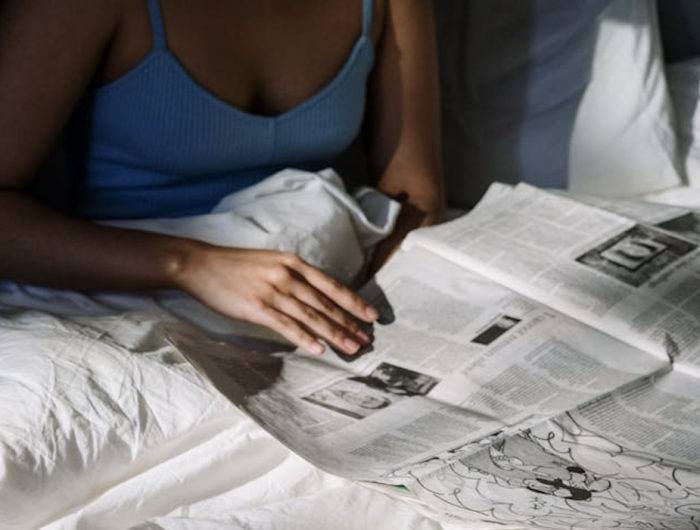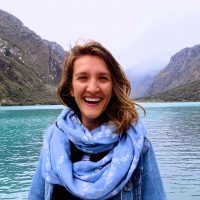
{*Did you know you can write on Elephant? Here’s how—big changes: How to Write & Make Money or at least Be of Benefit on Elephant. ~ Waylon}
~
Today, something strange and profoundly unsettling happened to me out of the blue.
In an unwarranted Google search, attempting to ensure I never run into him in this city again, I stumbled across a New York Times article about an ex-partner and his now wife.
As I read the headline, a subscription window popped up, attempting to block my efforts to closely examine the contents of the post. Without a second thought, I pulled out my card and began hastily typing in the details in order to secure a weekly subscription to the service.
As I began to read, I could feel my heart drop down into my stomach. It had been a few years since we separated, and while I had no desire to reunite, I also never envisioned myself sitting here today, alone and ashamed of how the past had unfolded.
To say the pandemic was life-changing would be an understatement. The understatement of the century, some might say. But I know it’s not just the case for me. I am not too ignorant nor too narcissistic to acknowledge that thousands of people experienced an upheaval far worse from my own.
Many lost loved ones closest to them and were separated from their families for years at a time. Many became physically ill and were unable to visit each other in their deepest and darkest times of need. And while we may like to see the silver lining of what this experience brought into our lives and how our world as we know it is now, it would be impossible and frankly disingenuous to not also acknowledge all the pain and strife it caused us as a collective.
In my experience, the pandemic and the struggles I incurred as a result of living in lockdown after having backpacked the world for several years was unprecedented. Where do I even begin? I find myself asking as I write these very words. To share it all seems impossible. But to keep it to myself after all these years of heartache feels out of the question.
So here it goes:
In August of 2019, I came home to a different Boston. I was still riding that enormously euphoric “backpacker’s high” having traveled to over a dozen countries in the past year alone. In 2015, I joined the Peace Corps and was stationed in a rural mountain town in the Andean highland region of Peru. I learned more about myself in my first year there than in all the 25 years of my life that preceded. It was, to say the least, life-altering.
I also fell in love with a man who became my best friend and travel partner for the next four years. That chapter of my life was bittersweet as I grew to realize that the grass is not greener where you visit, but where you water it.
When I returned to Boston, I was hopeful for a fresh start. But having just turned the ripe old age of 30, I felt the pressures of society bearing down on me. No partner, no house, no children, no job—nothing. Who was I to return to the city so empty-handed? I knew deep within that I had built character and resilience throughout my years of travel and humanitarian service, but in the material sense, I quite literally had nothing to show for it.
It wasn’t long before I found myself employed as a Preschool Director. I fell in love with that role and adored the teachers I supervised and the families and children we all served. Still, it felt like something was missing. I was lonely. That much was certain. And given that most everyone around me had a partner, it only felt fitting that I should begin to step back into the dating world.
Prior to this time in my life, I had never had a desire or even a need to use a dating app of any kind. But after taking a deep breath and getting the approval of my closest friends and family, I uploaded my first Hinge profile.
What a peculiar and somewhat magical experience to be presented with so many faces of good-looking strangers, all with an array of hobbies, interests, and talents that sounded remarkable. Before I knew it, I was swiping left and right like a pro. That is until I stumbled across one particular suitor. His profile stood out to me above the rest and I almost physically swooned reading the words accompanied by breath-taking photos of his travels.
I thought, “This could be someone I really could match with.”
And to make an incredibly long story short, we did match. We matched perfectly—until we didn’t. Of course, that didn’t stop us from acting like two teenagers in love for those first few months we dated. Within eight months, we had our first apartment together in a part of town with a lot of “postcode envy,” as Lorde would sing. And I really thought, naively, that I had it all.
I had finally “made it,” at least in the eyes of society. I had the partner, the big-time apartment on the 17th floor of a brand spanking new apartment complex, and a director role at a high-profile nonprofit. What wasn’t there to love about this newfound high life I had seemingly created out of thin-air?
Well, as it turns out, there was a lot not to love. And as I came to find out, there was a lot my then partner didn’t really love about me. Like the size of my thighs, or the way I ate my meals too quickly, even though I had been condition to do so, having been an educator most of my life. Then there was the issue of our cultural differences. He was from a different country, one I had made the effort to visit and spend almost a month in prior to meeting him, but nonetheless, did not really know a thing about. I’m an American after all, and while I’m privileged and grateful to hail from this country, I also recognize the limitations I face when it comes to understanding the Eastern hemisphere.
The more apparent our differences became, the more I realized deep within that we truly weren’t meant for one another. Still, I had no idea how to share my feelings aloud, or how to even begin to uproot the life I had taken such an active part in creating. So instead of acknowledging my despair, I tried to suppress it. I turned to nearly every substance available to me, and replaced the “backpacker’s high’ with an entirely different kind of euphoria.
As Taylor Swift sings, “my midnights became my afternoons” as I searched for answers on the rooftop of my deluxe apartment building while staring down the bottom of an empty bottle. It wasn’t long before I started to feel untouchable. And it wasn’t long thereafter that I became absolutely disgusted with myself and all the hypocrisy I had come to riddle my life with. Nothing aligned—not my job and the intense focus on how to best manage the pandemic, and not the people I surrounded myself with, who not-so-secretly delighted just a bit too much in my ultimate downfall.
I’m aware of the potential for a severe “vulnerability hangover” here as the great Brené Brown experienced and shared in her subsequent TED talks. So maybe I won’t get into all those nitty gritty details. But I will say this: reading that New York Times article put things into perspective in a way I was never willing to accept before today. Truthfully, I’ve spent the last three years wondering how I could have changed the past to avoid the heartache that followed.
But today, I’ve changed my mind. Today I am choosing to lay down the past at my feet, in all its glorious imperfection. I’m choosing to forgive myself for the mistakes I made and for taking the path less traveled. Turns out, as Robert Frost writes, it really does make all the difference.
And who knows? Maybe one day I will be brave enough to share more of my story with the public. And maybe, just maybe, I’ll submit the manuscript to The New York Times…
~

This account does not have permission to comment on Elephant Journal.
Contact support with questions.